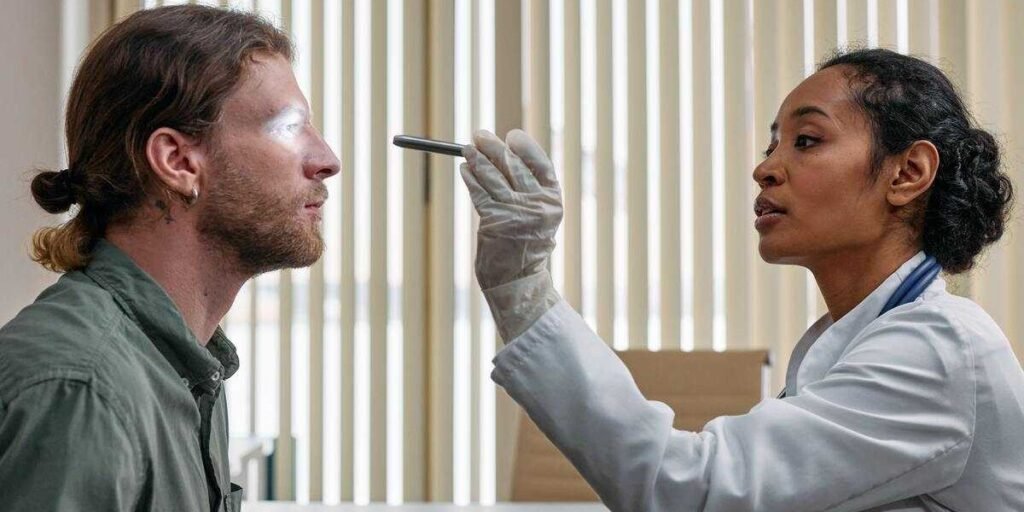
What is Glaucoma? How to Cure
Glaucoma is caused by abnormal intraocular pressure (the average intraocular pressure in normal people is 12~21 mmHg), which causes the optic nerve to atrophy and the visual field to gradually shrink. It is an ongoing optic nerve disease, and the damage caused is irreversible; the effects of glaucoma The goal of treatment is to reduce or control intraocular pressure in a stable range and prevent further deterioration of the optic nerve. According to the World Health Organization (WHO), glaucoma is the second leading cause of blindness worldwide.
Introduction to Glaucoma Surgery
Glaucoma surgery can reduce the risk of further damage to the optic nerve. Traditional glaucoma surgery is trabeculectomy or trabeculectomy, and can be performed at the same time as cataract surgery. In addition to traditional surgery, there are now also minimally invasive surgeries and laser surgeries, which can be applied to different conditions.
The retina usually transmits the received images to the brain through the optic nerve, so that people can see the surrounding scenes. If the fluid in the eye is not secreted enough, causing high intraocular pressure, it can damage the optic nerve and cause glaucoma. But in some cases, the optic nerve can be damaged even if the intraocular pressure is normal.
Risks and Sequelae of Glaucoma Surgery
The most common glaucoma surgery problem is scarring at the fluid outlet, which prevents the fluid from being drained and interferes with the results of the surgery. The patient may need to undergo subsequent surgery to solve the problem.
The following are possible complications that may occur in the short term after glaucoma surgery:
- Blurred vision
- Eye bleeding
- Eye infection
- The risk of temporary or long-term loss of the central visual area depends on the extent of the central visual area lost before surgery.
- The intraocular pressure increases, causing the front of the eye (anterior chamber) to collapse, forming Malignant Glaucoma but this is very rare.
The following are complications that may occur over time after surgery:
- Cataracts are worse than before surgery
- Persistent changes in the nerves behind the eye related to glaucoma
- Infect
- Slight drooping of the eyelids is very common.
Before having surgery, it is important to understand the possible side effects and risks. If you have any concerns, please contact your physician for more complete information.
Glaucoma Surgery Process and Preoperative Preparation
- Before considering glaucoma surgery, doctors often try medication first. If surgery is to be performed, laser surgery is usually performed first. If laser surgery is useless, traditional surgery may be chosen.
- Before surgery, you must discuss any recent medications you have taken with your doctor, as well as any allergies or any medical conditions. You will also meet with the anesthesiologist before surgery to plan your anesthesia together. In addition, please be sure to abide by the dietary taboos before surgery, such as how long before surgery you should eat and drink.
- Mitomycin is a drug often used during surgery to prevent scar formation. 5-Fluorouracil (5-FU) is another drug that can be injected into the conjunctiva (the thin tissue that covers the eye) after surgery, also to avoid scarring, and can be used during surgery. The drug mitomycin is more commonly used than 5-fluorouracil, but should only be used before surgery.
- The surgery usually takes 45 to 75 minutes. The doctor will open a channel in the eye so that the fluid in the eye can drain easily and collect under the eyelid. If you have any concerns, please consult your physician for more complete information.
Post-op Recovery From Glaucoma Surgery
- Patients are usually able to go home within a few hours of surgery, but will need about two weeks of rest.
- Patients may need to return to the clinic several times in the weeks after surgery to allow physicians to follow up on individual conditions.
- Do not swim, lift heavy objects, or bend your head below your waist until your doctor gives you permission.
Regular exercise can help a person get back to normal life as quickly as possible, but before starting exercise, talk to your doctor. - Most people recover well from surgery and keep glaucoma well under control.




